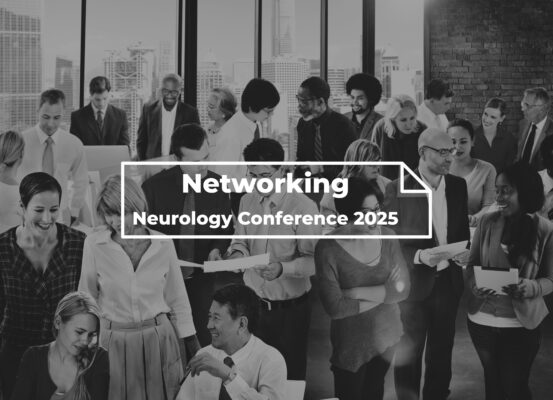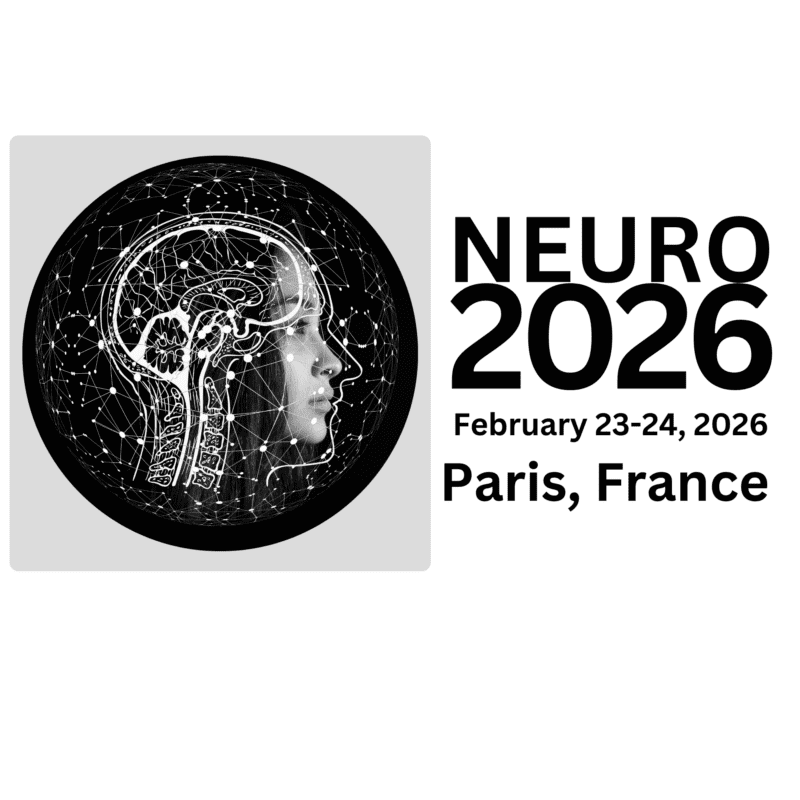Maximizing Your Networking at Neurology Conference 2025: Who’s Going to Be There?
Networking is one of the most valuable aspects of attending any conference, and it plays a critical role in building your professional connections. Whether you’re a seasoned professional or new to the networking scene, a little preparation goes a long way in ensuring you make the most of your time. As we gear up for the 3rd European Congress of Neurology and Neuropsychiatry, let’s discuss how you can maximize your networking opportunities and get the most out of the event.

Step 1: Know Who’s Going to Be There
The first step in successful networking is simple: figure out who’s attending. When you know who will be at the event, you can tailor your strategy, prioritize your interactions, and focus on building meaningful relationships with key individuals. In most cases, once you’ve registered for the event, you’ll have access to an attendee list or invite list. Make sure you take the time to review it.
Look for:
- People you already know: A great way to ease into networking is by reconnecting with old colleagues, collaborators, or acquaintances. These familiar faces can also introduce you to new contacts.
- People with common connections: Skimming through LinkedIn profiles of other attendees can help you find shared connections. Whether it’s mutual friends, interests, or shared fields of research, having a common link can serve as a perfect icebreaker when meeting someone new.
Step 2: Do Your Research
While seasoned networkers may be able to attend events and seamlessly strike up conversations with anyone, for most people, doing some research in advance can give you a serious advantage. If there are specific individuals or organizations you want to connect with, take a few minutes to learn more about them.
- LinkedIn: This is your best friend when researching fellow attendees. Skim their profiles, see their recent posts, and note their career highlights. A little background knowledge can help you start more meaningful conversations.
- Company websites: If you’re interested in connecting with someone from a particular organization, learning about the company’s current projects or initiatives can make your conversation much more relevant and informed.
Step 3: Leverage Mutual Connections
If you’ve found some mutual connections with other attendees, don’t hesitate to reach out before the event. Whether it’s a shared colleague or similar research interests, common ground makes it easier to break the ice. You can even ask your mutual connections to introduce you if they are attending the event as well.
Step 4: Be Aware of the Event’s Networking Opportunities
In addition to informal networking during coffee breaks or social events, many conferences offer dedicated networking sessions. Be sure to check the event schedule for any mixers, meet-and-greet sessions, or structured networking activities.
Step 5: Approach with a Plan
Finally, go into the event with a clear idea of what you want to achieve from your networking efforts. Are you looking to collaborate on a research project? Hoping to meet industry leaders? Or are you simply there to learn from others? Having a clear purpose will guide your interactions and help you make the most of your time.
Register Now
At the 3rd European Congress of Neurology and Neuropsychiatry, you’ll have the opportunity to meet a wide range of professionals from various fields related to neurology, psychiatry, and neuroscience. This diversity fosters a rich environment for networking, collaboration, and learning. Here’s a list of the types of professionals you can expect to meet:
1. Neurologists
Specialists in diagnosing and treating neurological disorders like stroke, epilepsy, Alzheimer’s disease, and Parkinson’s.
They are key figures in advancing research on brain health and neurological care.
2. Psychiatrists
Experts in mental health, psychiatric disorders, and treatment methods.
They often collaborate with neurologists to address the link between brain function and mental health.
3. Neurosurgeons
Professionals who perform complex surgeries on the brain, spine, and peripheral nervous system.
Their expertise in surgical intervention makes them crucial in treating severe neurological conditions.
4. Neuropsychologists
Specialists in understanding the relationship between the brain and behavior.
They work with patients who have experienced brain injuries or neurodegenerative diseases to assess cognitive and emotional functioning.
5. Researchers and Academicians
Individuals contributing to the latest advancements in neurological and psychiatric research.
Many attendees will be presenting research papers, leading workshops, and driving discussions on groundbreaking topics.
6. Neuroradiologists
Experts in interpreting brain and spine imaging such as MRIs and CT scans.
They play a key role in diagnosing neurological disorders.
7. Pain Medicine Specialists
Professionals focusing on the management of chronic pain, including neuropathic pain, cancer pain, and other related disorders.
Their expertise spans multiple medical disciplines, including neurology and psychiatry.
8. Pharmaceutical and Biotech Experts
Representatives from pharmaceutical and biotech companies showcasing the latest therapies, drugs, and medical devices aimed at treating neurological and psychiatric conditions.
A great opportunity for collaborations and partnerships in drug development and clinical trials.
9. AI and Technology Specialists
Professionals in artificial intelligence, machine learning, and health technology who are pioneering new tools and methods to diagnose and treat neurological and psychiatric disorders.
A growing field in neuroscience, bringing innovation to healthcare through cutting-edge technology.
10. Mental Health Practitioners
Psychologists, counselors, and therapists focusing on mental health, behavioral therapy, and holistic approaches to mental well-being.
They are instrumental in developing integrated care strategies for patients with neurological and psychiatric disorders.
11. Clinical Neuroscientists
Researchers studying the clinical applications of neuroscience, including treatments for brain and nervous system disorders.
They help bridge the gap between research and practice, advancing new treatments.
12. Medical Students and Trainees
Future healthcare leaders eager to learn from industry experts, engage in workshops, and present their research.
A fantastic opportunity for seasoned professionals to mentor the next generation.
13. Healthcare Administrators and Policy Makers
Professionals involved in shaping the future of neurology and psychiatry through healthcare policies, hospital administration, and system management.
Their decisions impact the delivery of healthcare and the implementation of new treatments and research.
14. Product Developers and Engineers
Individuals designing medical equipment, diagnostic tools, and innovative healthcare technologies for neurology and psychiatry.
They collaborate with medical professionals to improve patient care through advanced technologies.
15. Nonprofit and Advocacy Group Leaders
Representatives from patient advocacy organizations working to raise awareness about neurological and psychiatric disorders.
They provide a voice for patients, influencing research priorities and funding efforts.
Conclusion
Networking at the 3rd European Congress of Neurology and Neuropsychiatry will give you the chance to connect with professionals from across the globe, exchange ideas, and establish valuable relationships. By doing a little preparation beforehand—researching attendees, reviewing LinkedIn profiles, and finding common connections—you’ll be able to maximize your networking potential.
Remember, effective networking doesn’t just happen during the event—it starts before you even walk in the door. Take advantage of these tips, and you’ll be well on your way to building lasting professional connections!
See you at Neuro 2025!
#Networking #NeurologyConference #ProfessionalConnections #EventPreparation #Neuro2025 #NeurologyAndPsychiatry #NetworkingTips

